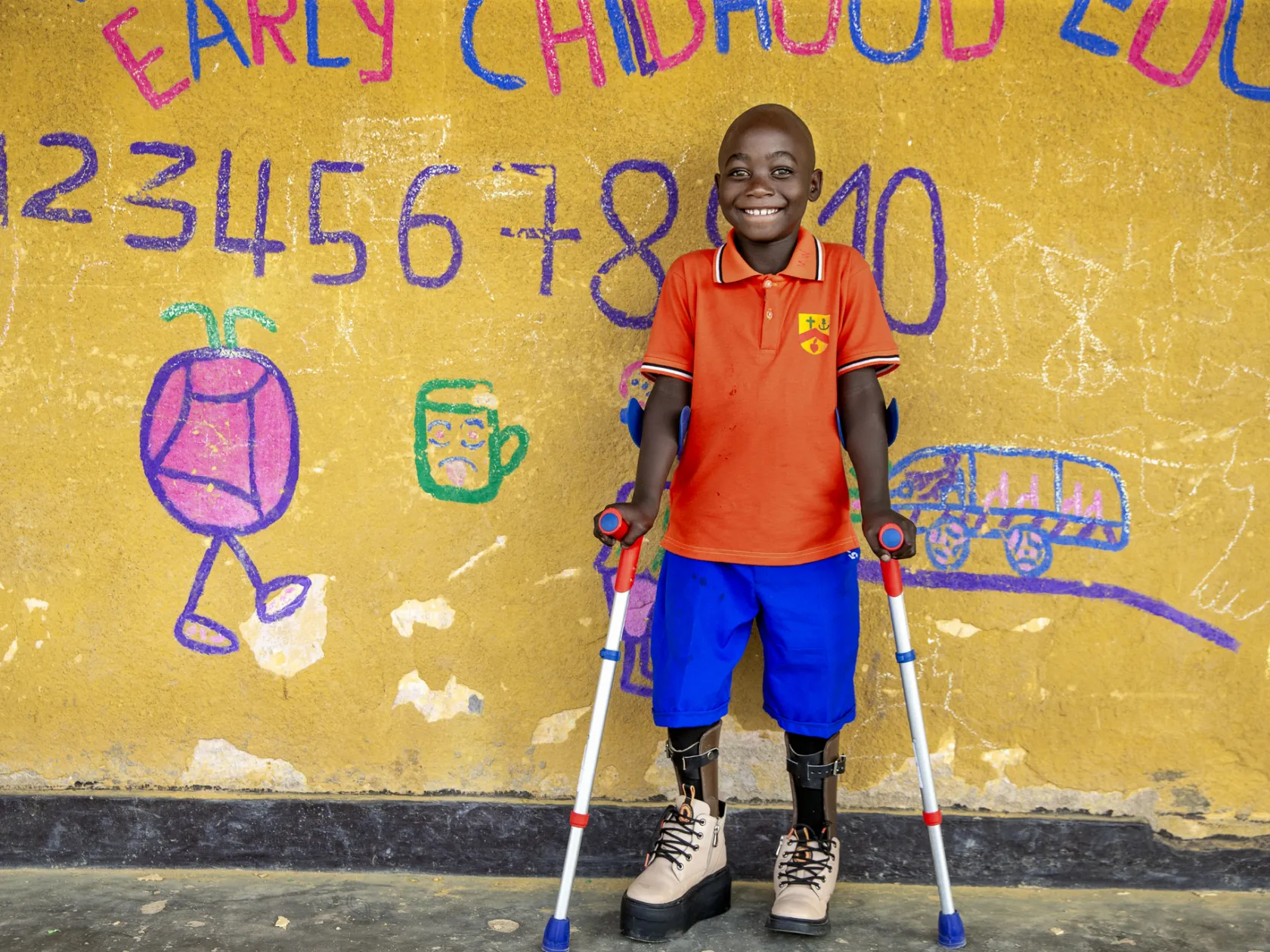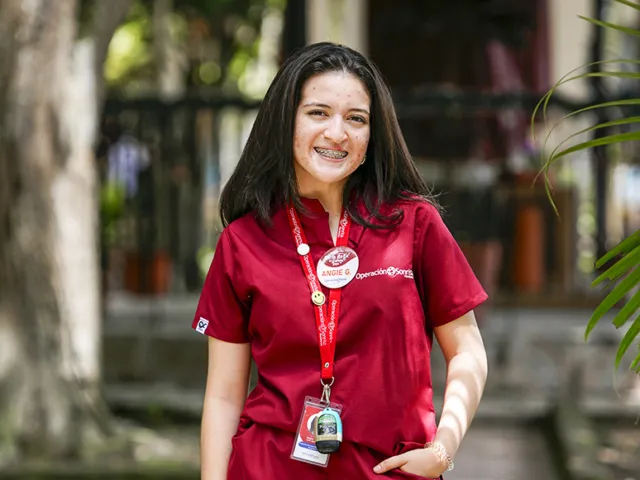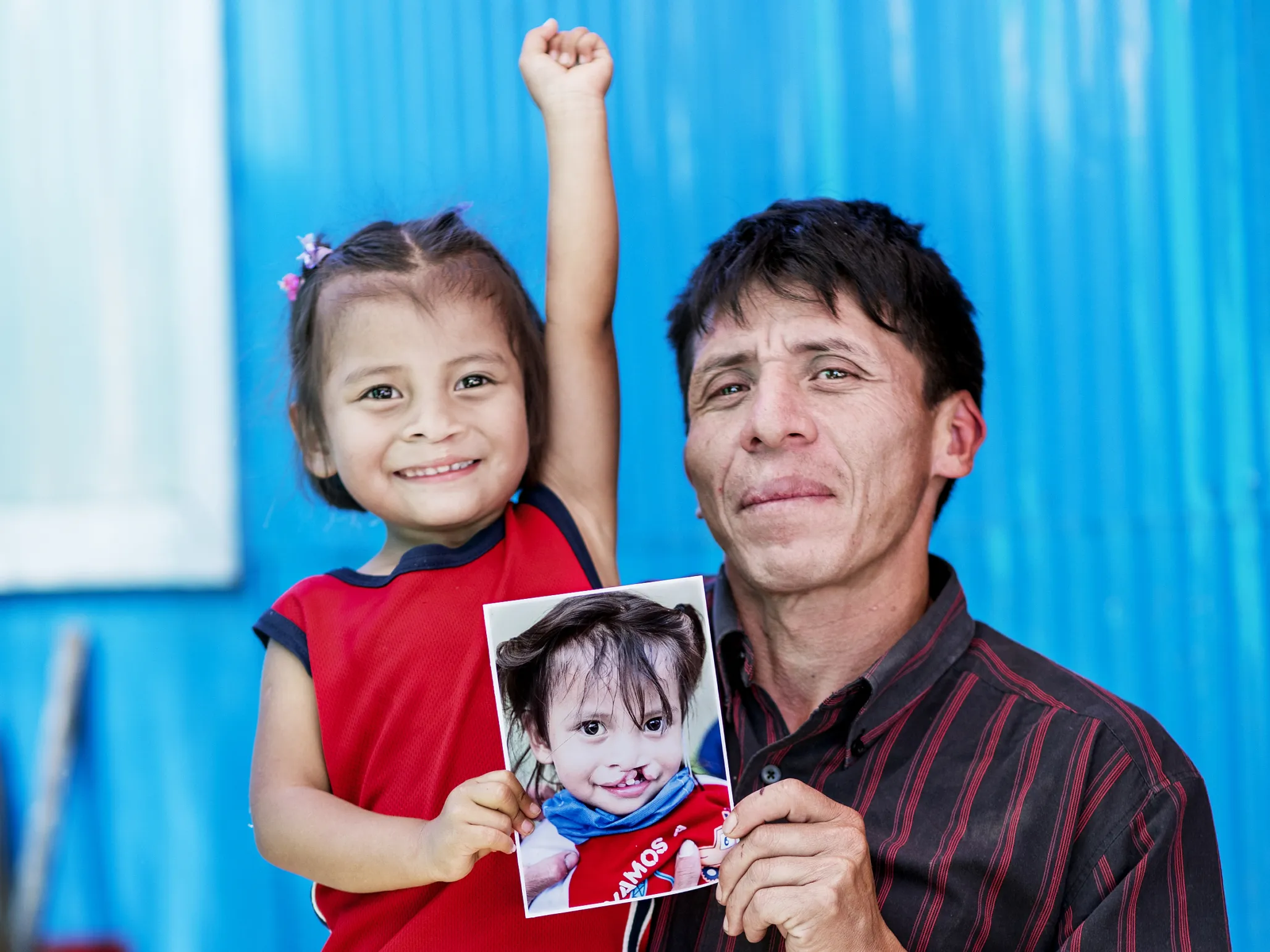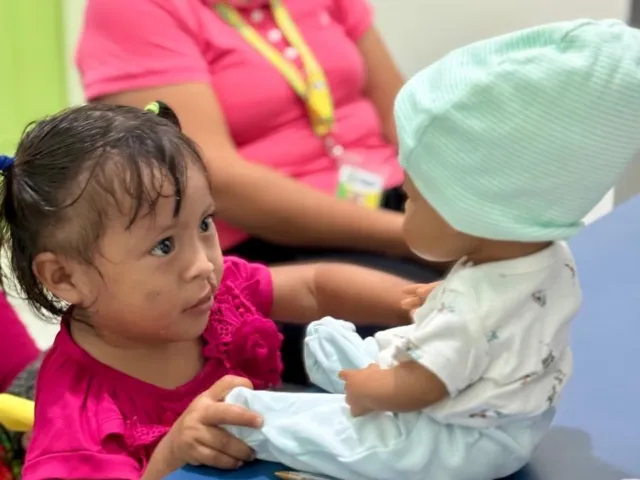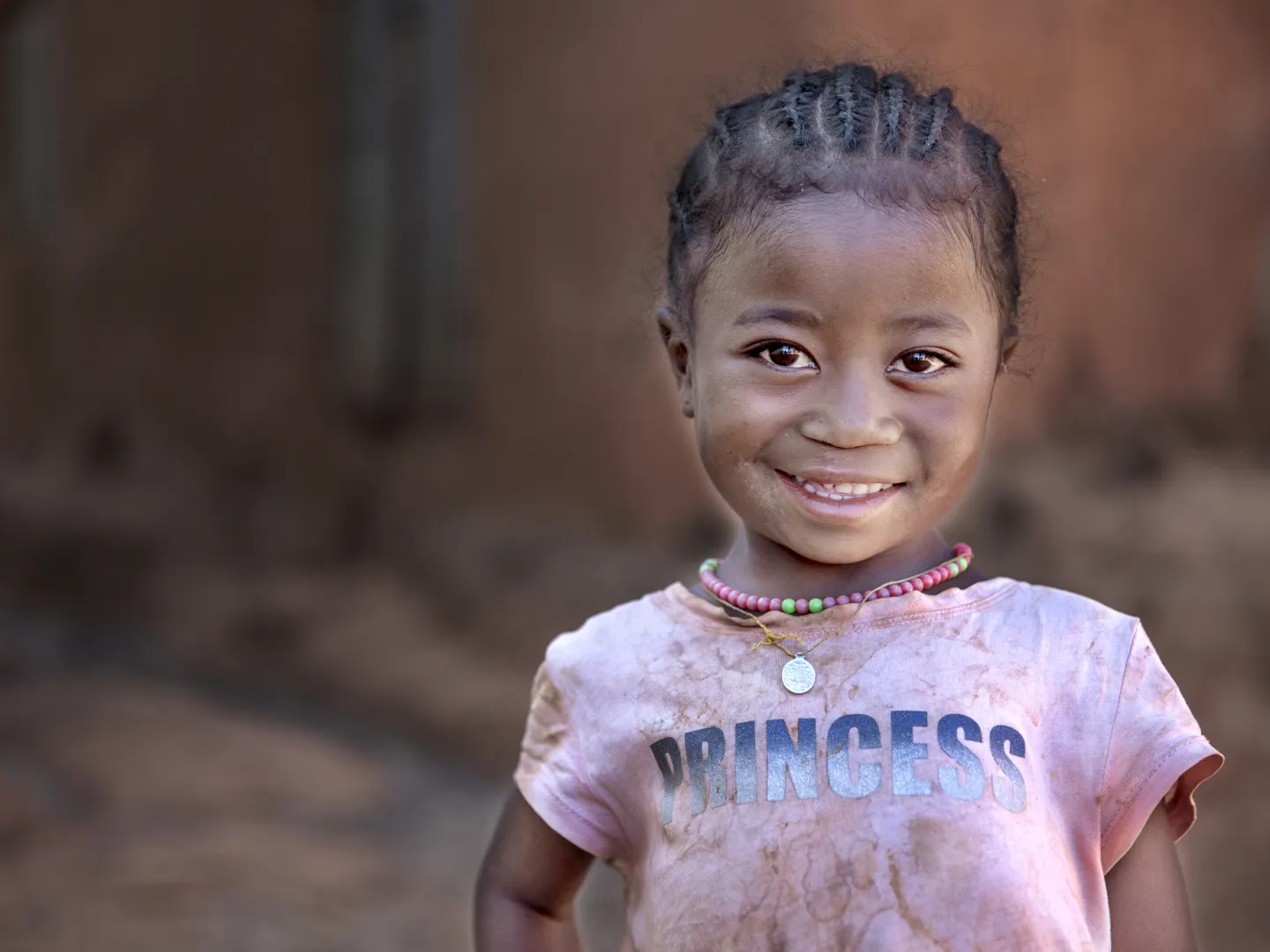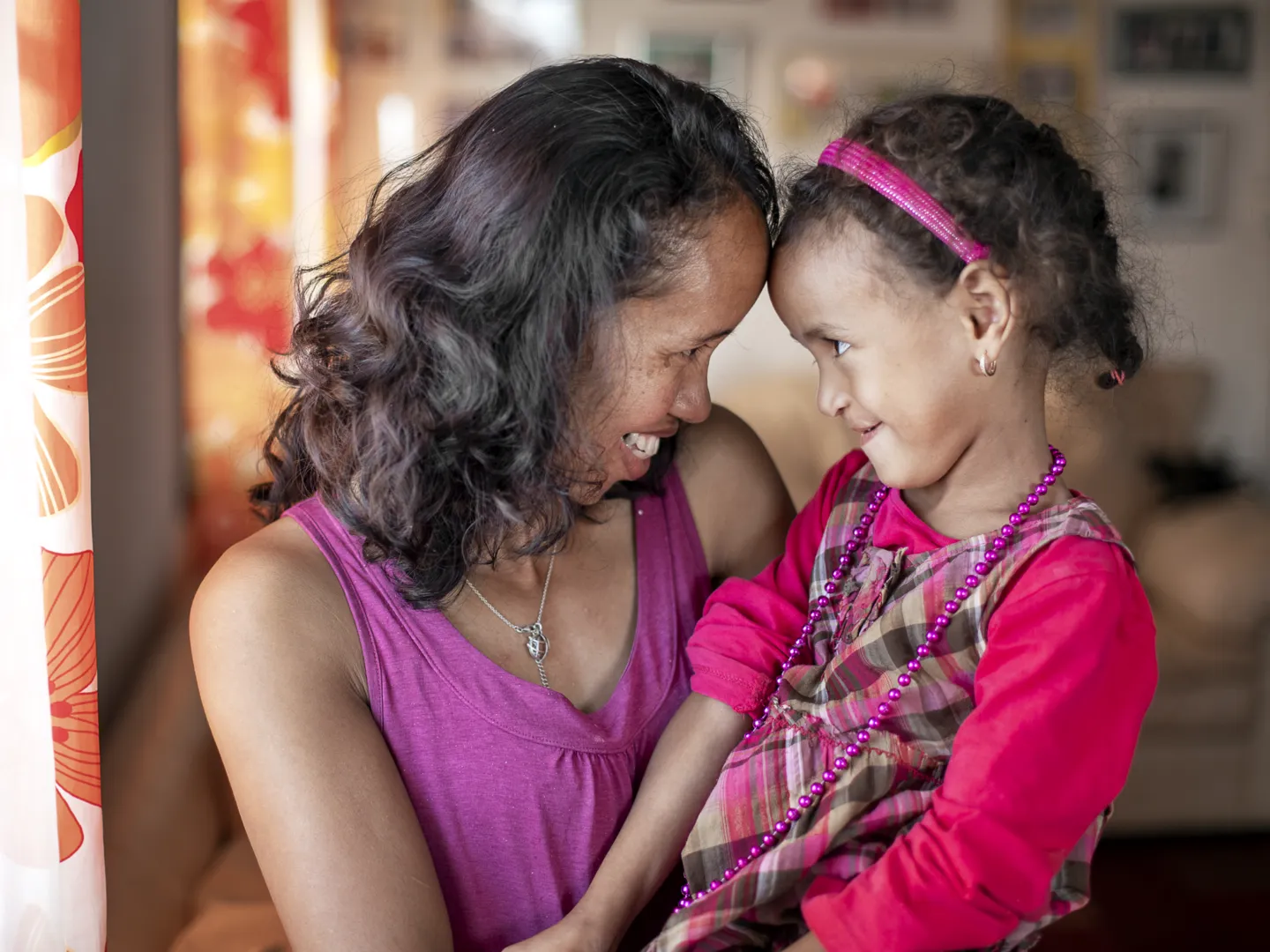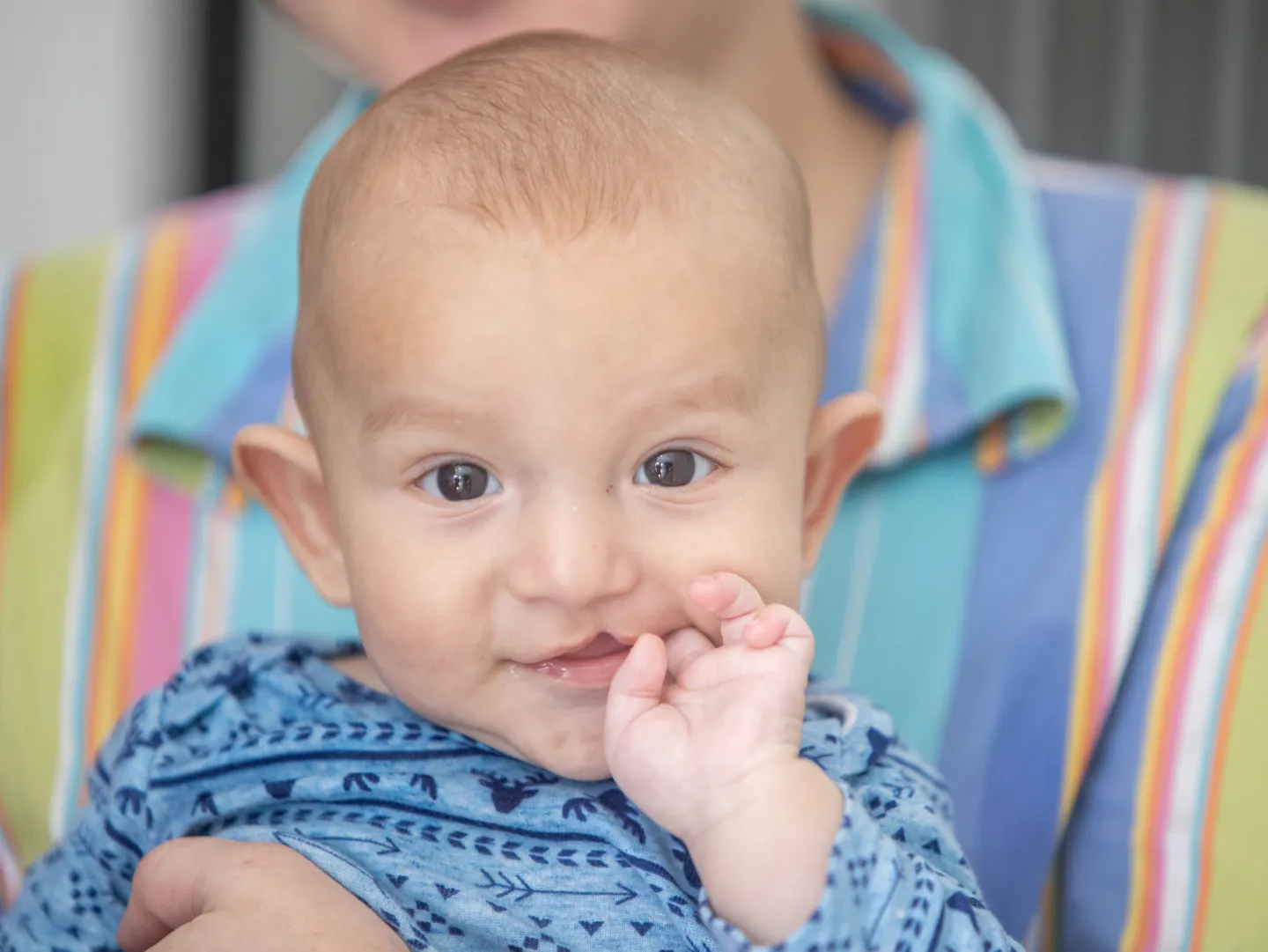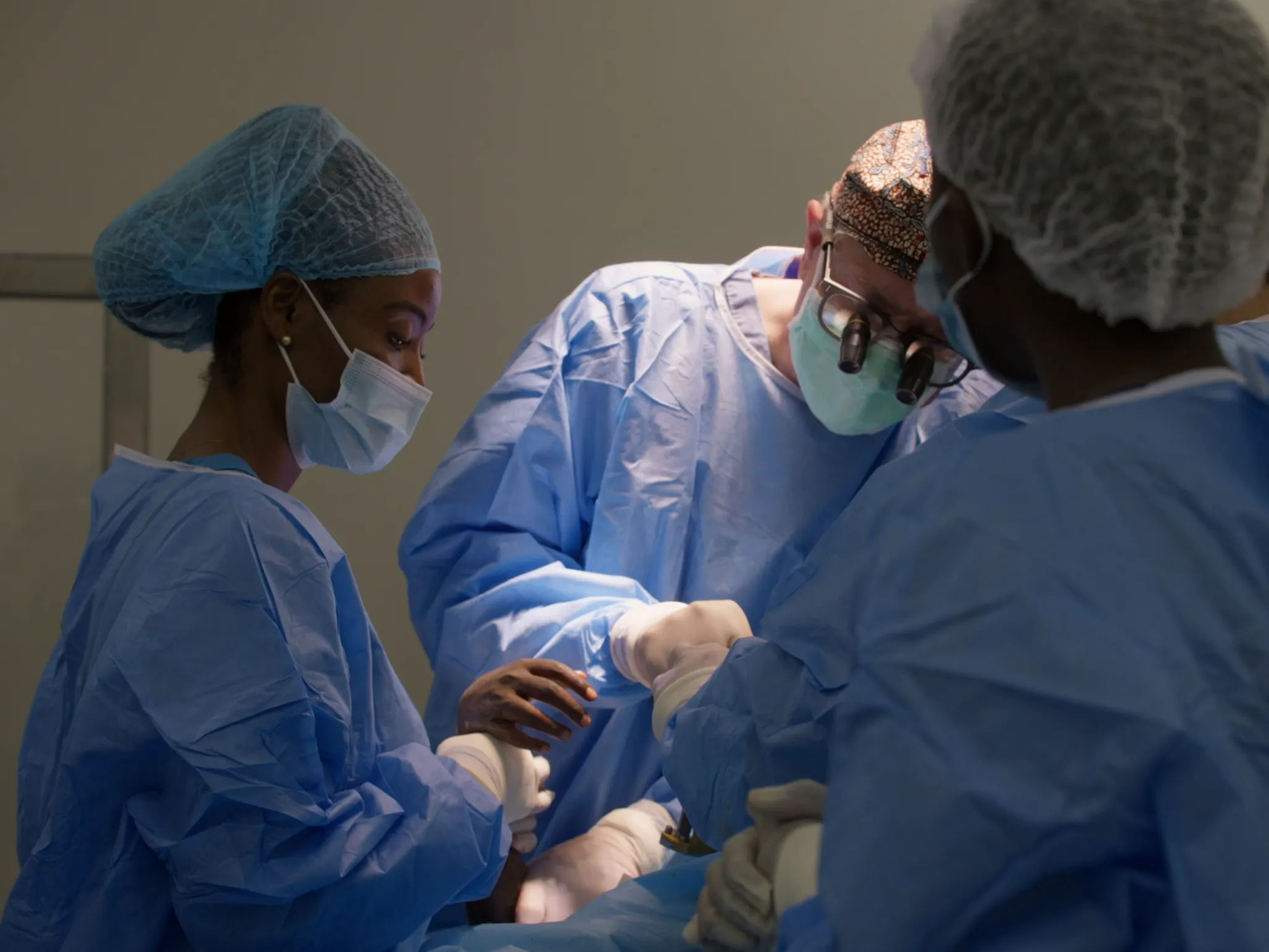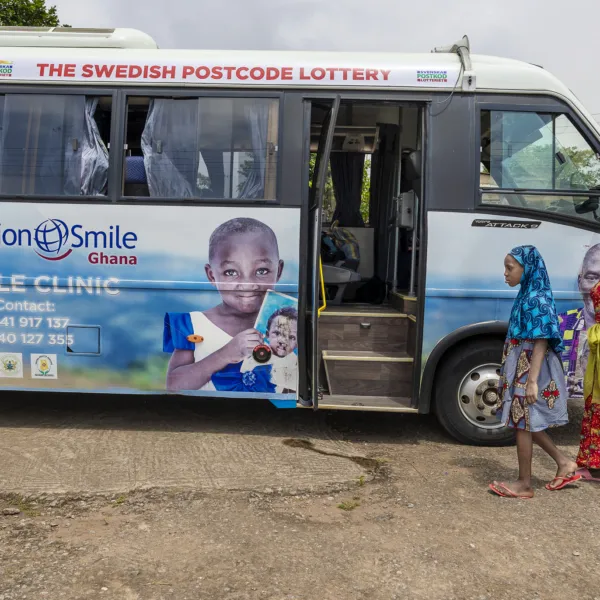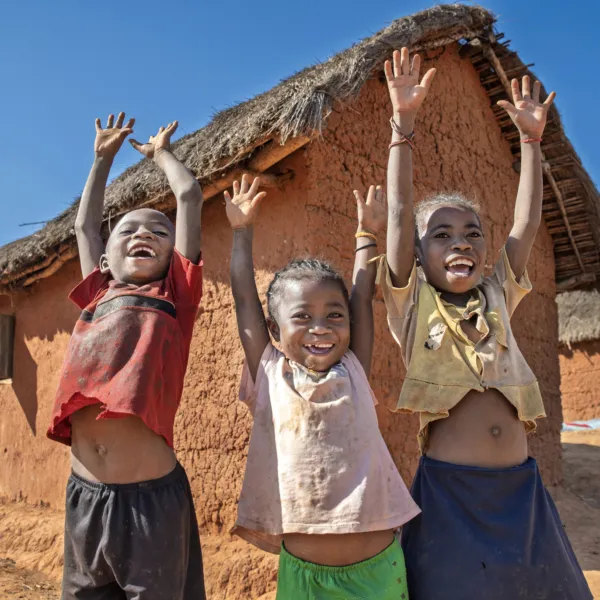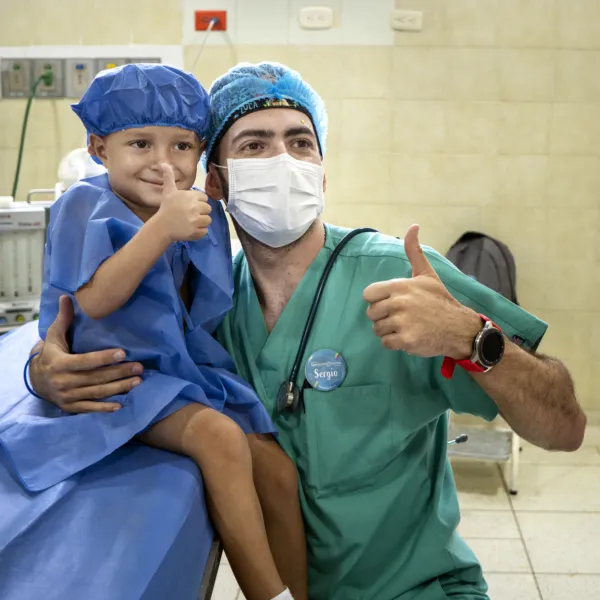Patients
Through a Mother’s Eyes
A Q&A With Ana

Like most parents who discover that their child’s health is at risk, Ana, Zoe’s mom, immediately began learning everything she could about cleft conditions.
But regardless of how much she discovered about cleft lip and cleft palate, Ana couldn’t prevent feelings of guilt from emerging after hearing hurtful comments and judgmental questions from members of her community.
“I’d feel bad because some people would say, ‘Why was her daughter born like that? Didn’t you look after yourself properly during your pregnancy?’ To be honest, those questions would sometimes make me feel bad as a mother,” Ana said.
After crossing paths with Operation Smile Honduras, Ana shared that there was no distance too great capable of preventing her from seeking a solution for Zoe. And with whatever the future holds, Ana hopes Zoe will have a brighter and healthier life after surgery.
“All I want is to educate her so that she may succeed,” Ana said. “Perhaps, when she grows up, she can decide if she’ll keep studying beyond that and have a career in something she likes.”
We caught up with Ana during an Operation Smile Honduras surgical program where she discussed the challenges she faced and overcame as well as the relief she felt knowing that the organization changed her daughter’s life and continues to change the lives of so many more patients.

Q: Please introduce yourself.
A: “My name is Ana, and I’m Zoe’s mom.
“She was born on July 23 at 6:15 a.m. When I gave birth to her, I was surprised. Throughout my whole pregnancy, when I went to get the ultrasounds, they never told me that she was coming with that problem. When they gave her to me, I was shocked because I didn’t expect her to have a cleft lip. I burst into tears. Like any mother, I was obviously scared and worried seeing my child like that.”
Q: What worried you the most about having a child with a cleft condition?
A: “One of my greatest fears was that I thought, ‘Will I be able to feed her? Will she be able to talk properly as she grows up?’ I’d even put my breast in her mouth, and she’d move away as if she were drowning with the breastmilk. She’d constantly cry. I’d move my breast from one side to the other. She couldn’t breathe properly through her nose. That’s why she wasn’t breastfed for too long. It was mostly just bottle-feeding.
“I was extremely worried because, as a mother, I thought, ‘There’s nothing like breastfeeding.’ I wondered, ‘What if she doesn’t even drink from the bottle?’ I was concerned about that.
“When I went back home, I’d feel bad because some people would say, ‘Why was her daughter born like that? Didn’t you look after yourself properly during your pregnancy? Didn’t you take enough vitamins?’ To be honest, those questions would sometimes make me feel bad as a mother. It made me feel bad and slightly guilty.”

Q: Do you think Zoe ever noticed that her smile was different?
A: “Yes. Sometimes when she looks at herself in a mirror, she stares at her little face. She touches it, but she’s never asked me. She covers that spot.
“In terms of talking, I thought she would have trouble with that, but that’s not the case. She talks a lot, and she says many words very clearly. She talks well.”
Q: When did you find out about Operation Smile Honduras, and how did it make you feel to discover that there were people who could help you and Zoe?
A: “When she was born, the first thing the doctors told me was that I didn’t have to worry because my daughter was born healthy. The doctors told me not to worry because many children were born like that, and it had a solution. Nowadays, children who had a cleft lip and palate would get operated on. I felt relieved because it’s true. I’ve seen many children like this.
“Doctors told me that there was a foundation called Operation Smile. I obviously got excited when I heard them say that because I thought, ‘Not everything is lost.’ Throughout that whole process, when I went with my daughter, they did tests and everything, and they told me that she couldn’t get the surgery done because she was underweight. When Zoe wasn’t able to get the first surgery or the second surgery, I was very sad because, as a mother, I yearned to see her operated on because I’d see many very beautiful children who’d already been operated on.”

Q: How did the Operation Smile Honduras team support you throughout Zoe’s journey toward surgery?
A: “Throughout this whole process, they’ve supported me greatly. When I came to Tegucigalpa for the first time, they gave me medicine because she was sick. They gave her many medicines. They even gave me milk so I could give it to her. They gave her diapers. They offered us great service.
“I always kept in touch with one of the foundation members, Jorge. He told us, ‘In any case, you keep in touch with me, and I’ll keep in touch with you. Whenever a team comes, I’ll always let you both know.’ I wrote to him shortly after, and he told me, ‘I’m going to contact the foundation members so that you’re one of the priorities now because I know that you’ve been trying to get your daughter operated on for a long time.’
“What I yearn for the most is her surgery. I don’t care if I have to travel for so many hours. I just want to see my baby get her surgery. Finding out that this foundation exists made me happy because we’re low-income families that work hard to give our children everything.”

Q: What emotions did you feel after seeing Zoe’s new smile for the first time during Operation Smile Honduras’ August 2022 surgical program in Tegucigalpa?
A: “I started crying. It was exciting. I simultaneously had so many mixed feelings: happiness, nostalgia, everything. I think her future is going to change for the better. I think there will no longer be so much discrimination because sometimes some children would notice that she had something missing, and they’d say, ‘Why do you have that there? Did you fall down?’ I believe that now, she’ll face less discrimination from children.
“I really feel immense happiness because I tried hard to make this happen many times. Recently, when she saw her own little face for the first time, I noticed that she was thoughtful, like, ‘Is that me?’ What excites me the most is that she has already had surgery and taken that big step. At least it’s all over now. I was happy and worried at the same time, but we made it.”
Q: Do you have a message for Operation Smile Honduras and the people who helped change your daughter’s life?
A: “I recently realized that there’s an [Operation Smile Honduras] center in San Pedro Sula. It’s only 45 minutes away from where I live. It makes me happy because I know I’ll no longer have to make those long journeys. I’m very grateful to the foundation. I think it’s a great blessing to have this foundation for children. Now that this foundation exists, I’ve seen grownup people go to the foundation because they want to get their surgeries.
“I would tell the volunteers to keep supporting the foundation because it has helped many children born with this kind of condition. I used to think there weren’t that many, ‘Is it only my daughter?’ But after going through my daughter’s surgery, I’ve realized there are many children just like her. It’s a wonderful organization.”

